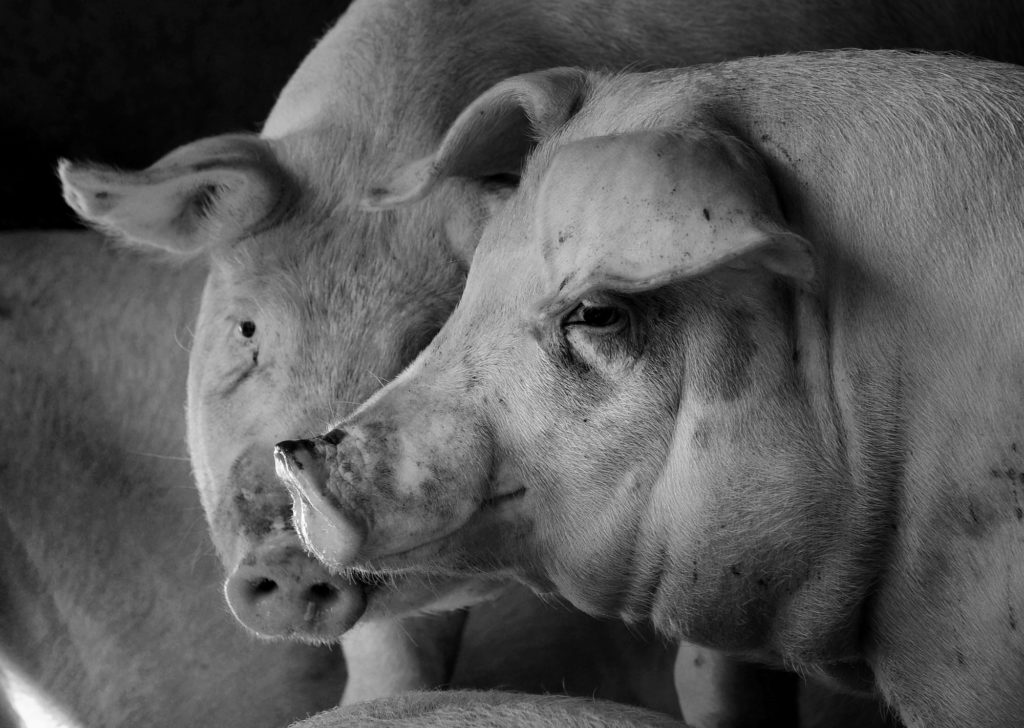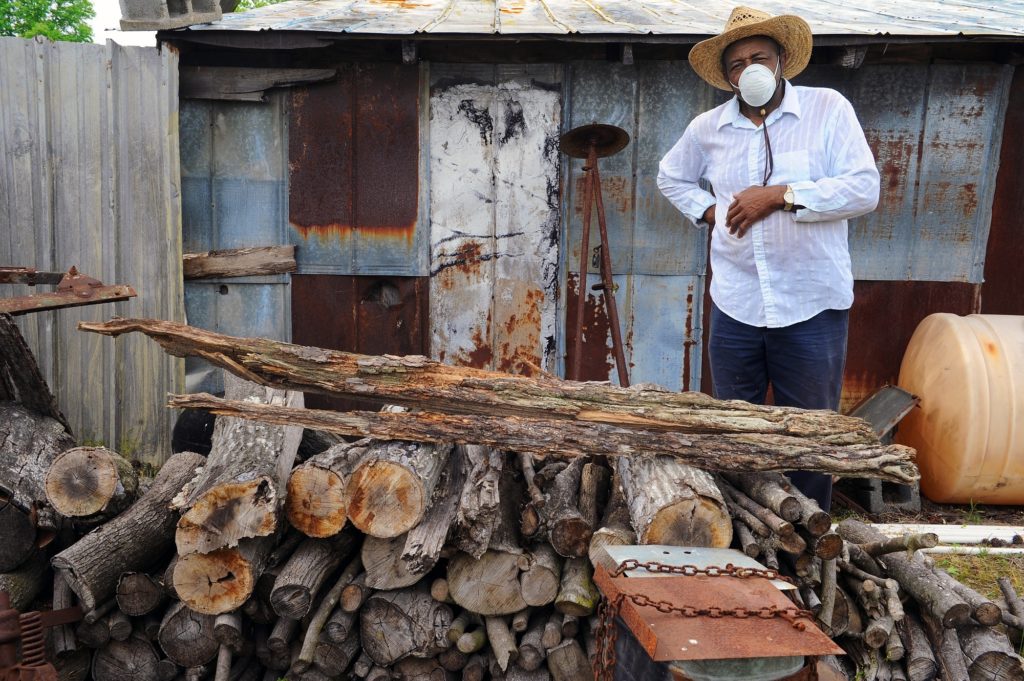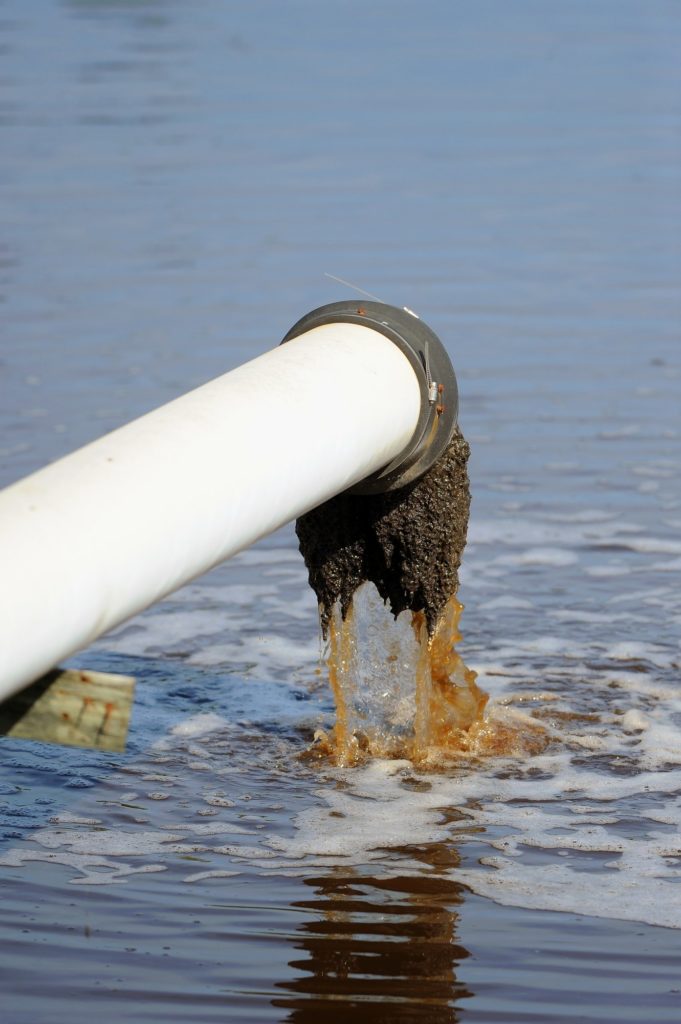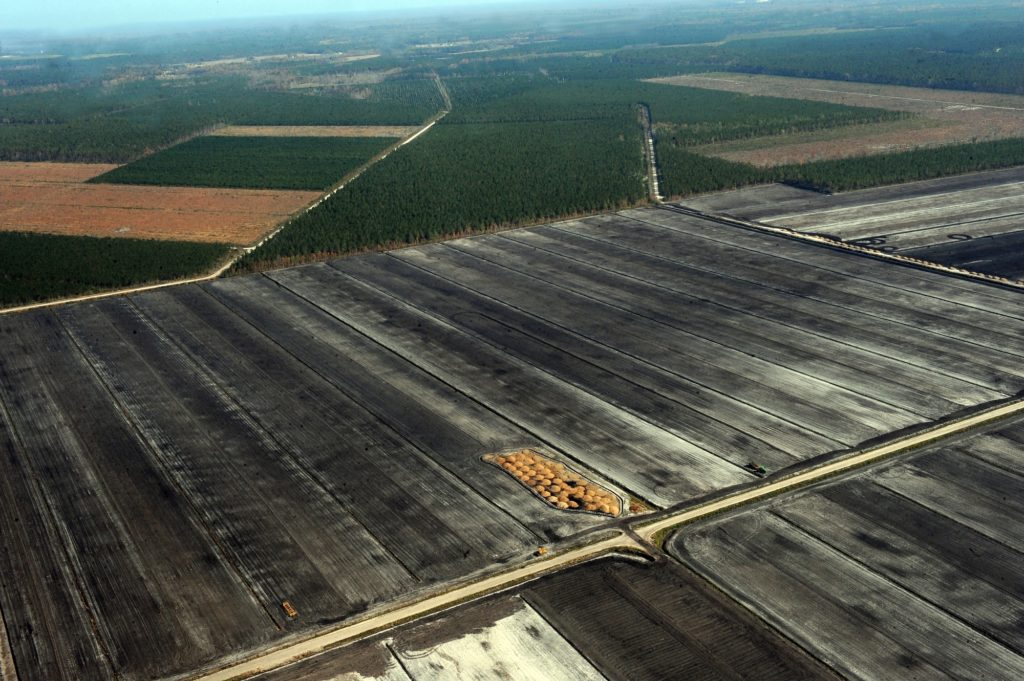What To Do When State Regulation Stinks
By: Gray Jernigan
North Carolina’s Waterkeepers are using the civil rights act to clean up minority communities.

Take a drive through eastern North Carolina, and you’ll see beautiful stands of longleaf pine, vast blackwater swamps, and some of the most productive agricultural land on earth. But you will also likely detect a faint, disturbing odor wafting from the highest concentration of industrial hog operations in America.
For local communities, which are disproportionately African-American, Native American and Latino, that odor is neither faint nor occasional. It’s with them every day, a constant accompaniment to the rampant water-and-air pollution that these operations create, and that cause health problems, swarms of insects, and diminished property values, stealing the joy from living in a place they’ve called home since long before the hog industry arrived.
Joining the fight has been the North Carolina Environmental Justice Network (NCEJN), a statewide, grassroots organization of community members and other groups. Its director, Naeema Muhammad, has been a leader in the battle for nearly two decades.In the 1980s, as the state’s massive tobacco industry began to decline, the hog industry moved in to fill the void. Ever since, local North Carolina Riverkeepers, with support from Waterkeeper Alliance, have been documenting pollution from these Concentrated Animal Feeding Operations, or CAFOs, and communities have repeatedly asked the North Carolina Department of Environment and Natural Resources (DENR) for stronger protections. Citizens have tried to reach a resolution with government officials that is agreeable to neighbors, regulators, and the industry. Some have brought civil complaints for nuisance and trespass against individual facilities.

“Poor people, and people of color especially, continue to suffer from the horrible conditions brought on by the industrial hog industry,” says Muhammad. “People just can’t ignore this.”
Most hog operations in North Carolina operate under a State General Permit, which supports the assumption that pollutants, including fecal bacteria and nutrients, stay on site. The permit allows the industry to flush hog feces and urine into open, unlined pits and then to spray this “liquid manure” onto nearby fields under the pretext of it being used as fertilizer. The problem is that there is too much of the waste being produced for the soil or crops to absorb it all. Much of the waste runs off the fields, which are extensively ditched to facilitate drainage in the low-lying coastal plain, and the waste contaminates nearby waters. It also drifts as a noxious mist onto neighboring properties.
“You can’t imagine what it’s like to live next to one of these hog operations,” says Devon Hall, project manager at the Rural Empowerment Association for Community Help (REACH), an organization that strives to improve the quality of life for people of color in the area. “It’s hard to enjoy the outdoors and it’s embarrassing to invite company over, because the flies and the smells make life miserable.”
But over the decades, complaints have largely fallen on deaf ears. Hall points out that DENR staff had attended his group’s “collaborative problem-solving workshops,” which were funded by EPA, but still the state agency neglected to act. Even after a January 2015 study published by researchers at the University of North Carolina and Johns Hopkins University linked high levels of fecal bacteria in local waterways to industrial hog-operations, state officials have been dismissive of citizens’ concerns.

“The negative impacts that hog operations have on the environment and neighboring communities is outrageous, and the government is turning a blind eye to those in harm’s way,” says Larry Baldwin, CAFO Coordinator at Waterkeeper Alliance. “It’s time the state took its responsibility to protect the citizens of the eastern portion of the state seriously.”
In 2014, after the state renewed the General Permit for hog operations without offering better protections, residents and the groups representing their interests took their strongest stand yet. Waterkeeper Alliance, NCEJN and REACH, represented by Earthjustice and the University of North Carolina Center for Civil Rights, filed a complaint with the U.S. Environmental Protection Agency Office of Civil Rights under Title VI of the Civil Rights Act of 1964. The complaint alleges that the State’s lax regulation of hog-waste disposal discriminates against minority communities in eastern North Carolina, and that its Department of Natural Resources’ recent permit allowing thousands of hog facilities to function without adequate waste-disposal controls violates federal law.
“We’ve been asking the state and our representatives for years to do something different about how this industry operates in the state,” says NCEJN’s Muhammad. “It was an insult to the community and to the people of the state of North Carolina to renew those permits.”
In February of this year, the EPA’s Office of Civil Rights announced that it had accepted the complaint filed against DENR and would proceed with an investigation of whether the agency’s actions have been sufficient to remedy what has become an institutionalized system of discrimination against minority communities.

Using the Civil Rights Act as a tool to stem industrial pollution may seem unorthodox to some, but it is not a new concept. Under the law, when a state-implemented regulatory program receives funding from the federal government, it must operate in a way that does not have a disproportionate negative impact on communities of color. When this requirement is violated, the EPA is authorized to cut off federal funding for the program, but it can choose less severe protective measures such as increased monitoring, inspection and enforcement.
Access to clean water – and air – are rights that are fundamental for citizens of a nation that is governed by the people. Ultimately, the residents of eastern North Carolina have been deprived of the rights to life, liberty and the pursuit of happiness promised to Americans by the Founding Fathers, and Waterkeepers have a responsibility to speak for them when their voices are not heard.
“I am confident that the EPA investigation will find it to be true that DENR has long failed to fulfill its obligation to protect citizens,” says Larry Baldwin, “and we look forward to having representatives come to eastern North Carolina to see the impacts first-hand.”